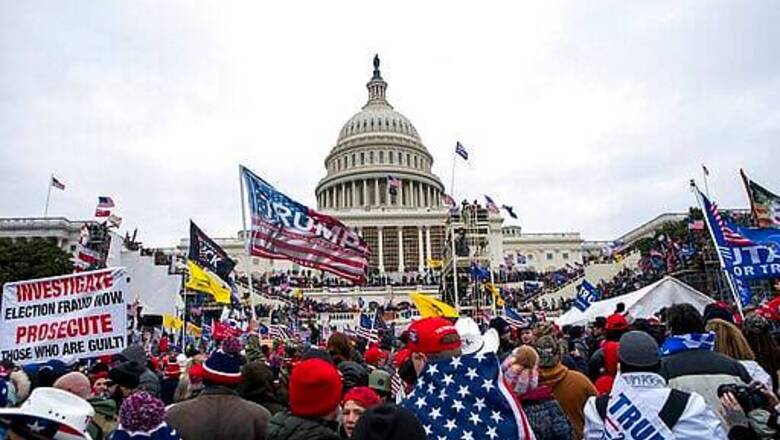
views
WASHINGTON: The losing side is likely to head straight to the Supreme Court, whatever decision the U.S. Court of Appeals for the District of Columbia Circuit reaches on whether Congress should receive former President Donald Trumps call logs, drafts of speeches and other documents related to the Jan. 6 insurrection at the U.S. Capitol.
WHERE DOES THE CASE STAND NOW?
Following Tuesday’s hearing, the appeals court judges will weigh the arguments and documents and issue a ruling. The court also must decide whether an order it issued to keep the National Archives from turning those documents over can be lifted. Normally when an issue is being deliberated, one of the parties will seek an injunction stopping the action. Often courts grant that motion.
HOW MIGHT THEY RULE?
During arguments, the judges focused heavily on the authority of courts to step in when a former president challenges the sitting president’s decision to allow the release of records from the previous administration. They asked questions of both sides about the impact of their ruling. The judges noted that President Joe Biden’s decision to waive executive privilege likely carries greater weight than former President Trump’s demand. But the judges also noted that there may be times when a former president would be justified in trying to stop the incumbent from releasing records.
HOW SOON WILL A DECISION COME?
It is hard to say. So far, things have moved quickly in this case. U.S. District Judge Tanya Chutkan heard arguments on Nov. 4 and issued her ruling five days later clearing the way for the document handover. The following day she rejected an emergency motion asking that she temporarily hold off a release of the documents while the matter was appealed. The appeals court granted an administrative injunction on Nov. 11, one day after Chutkan chose not to and one day before the records would have been turned over, to give the judges time to consider the case and schedule Tuesday’s oral arguments.
WHAT’S NEXT?
Whoever loses will probably appeal. If Trump loses, his lawyers will likely first ask the appeals court to issue another stay so the records aren’t released while they continue the case. Then they have the option to seek an en banc opinion, meaning the full cadre of judges in the D.C. circuit would hear arguments, not just the three now involved.. Or they could directly ask the Supreme Court to hear the case. Seven of the 11 appellate judges on the circuit were appointed by Democratic presidents, four by Republican presidents. The Supreme Court split is six justices appointed by Republican presidents, including three appointed by Trump, and three by Democratic presidents.
If the House committee loses, it would have the same options, although its members might well stay with the full appeals court as its first choice because of its makeup.
If the Supreme Court declines to take up the matter, no matter which side tries to take the case that far, then the appeals court opinion would be the final ruling.
WHY IS THIS CASE IMPORTANT?
Most directly, there is the specific matter of the Jan. 6 investigation. The 2022 elections are less than a year away, and if Republicans win the House, which many have anticipated, they will likely curtail or end the investigation. The committee could still report its findings based on what information it had by then.
There is also the broader question of executive privilege. The tested norm is that presidents enjoy the secrecy of records, both mundane and highly sensitive, of their own terms for a period of at least five years after they leave office, and often far longer. That is applicable to Biden and future presidents as well as Trump. Judges who heard arguments on Tuesday posed a hypothetical where a future president who dislikes his predecessor could work with Congress to release the former president’s records under the guise of claiming a national interest.
IF THIS RISES TO THE SUPREME COURT, IS THERE ANY PRECEDENT?
While not spelled out in the Constitution, executive privilege has developed to protect a presidents ability to obtain candid counsel from his advisers without fear of immediate public disclosure and to protect his confidential communications relating to official responsibilities.
But that privilege has its limitations in extraordinary situations for example in the Watergate scandal investigation when the Supreme Court ruled that it could not be used to shield the release of secret Oval Office tapes sought in a criminal inquiry.
Disclaimer: This post has been auto-published from an agency feed without any modifications to the text and has not been reviewed by an editor
Read all the Latest Politics News here
















Comments
0 comment